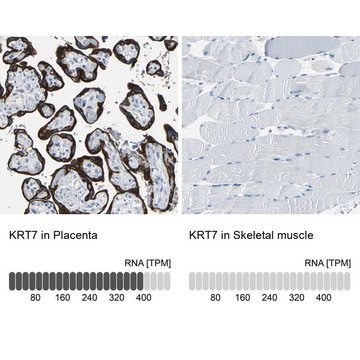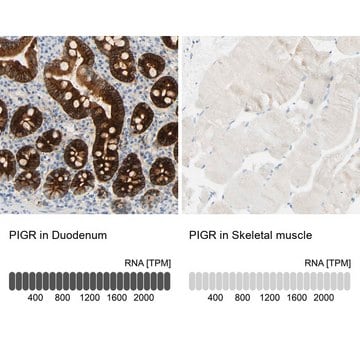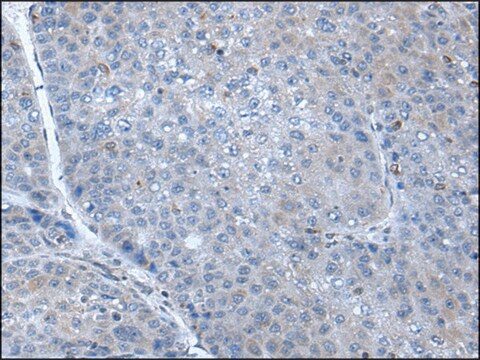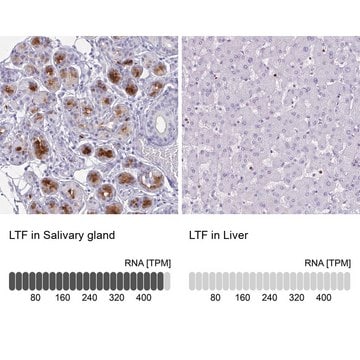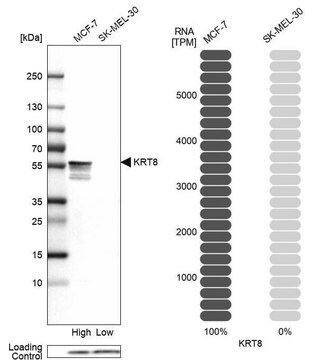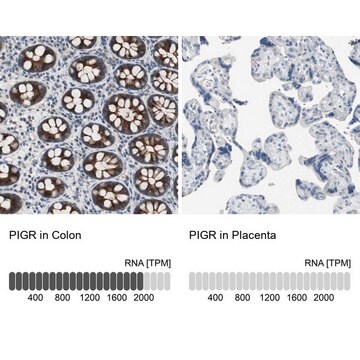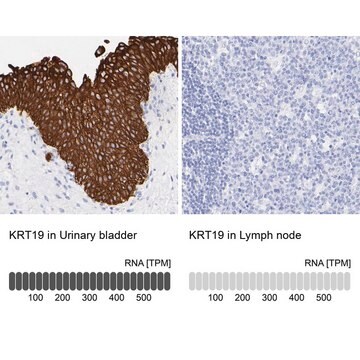SAB5701965
Anti-Cytokeratin 4 (KRT4) Antibody, clone 6H9R6, Rabbit Monoclonal
Synonyme(s) :
CK-4, CK4, CYK4, K4, WSN1
About This Item
Produits recommandés
Source biologique
rabbit
Niveau de qualité
Matériaux
colorless
Clone
6H9R6, monoclonal
Forme
liquid
Poids mol.
57 kDa
Espèces réactives
rat, human, rat
Concentration
0.42 mg/mL
Technique(s)
immunofluorescence: 1:50 - 1:200
immunohistochemistry: 1:50 - 1:200
western blot: 1:500 - 1:2000
Couleur
colorless
Isotype
IgG
Séquence immunogène
MIARQQCVRGGPRGFSCGSAIVGGGKRGAFSSVSMSGGAGRCSSGGFGSRSLYNLRGNKSISMSVAGSRQGACFGGAGGFGTGGFGGGFGGSFSGKGGPG
Numéro d'accès UniProt
Conditions d'expédition
wet ice
Température de stockage
−20°C
Modification post-traductionnelle de la cible
unmodified
Informations sur le gène
human ... KRT4(3851)
Description générale
Immunogène
Application
Code de la classe de stockage
10 - Combustible liquids
Classe de danger pour l'eau (WGK)
WGK 1
Certificats d'analyse (COA)
Recherchez un Certificats d'analyse (COA) en saisissant le numéro de lot du produit. Les numéros de lot figurent sur l'étiquette du produit après les mots "Lot" ou "Batch".
Déjà en possession de ce produit ?
Retrouvez la documentation relative aux produits que vous avez récemment achetés dans la Bibliothèque de documents.
Notre équipe de scientifiques dispose d'une expérience dans tous les secteurs de la recherche, notamment en sciences de la vie, science des matériaux, synthèse chimique, chromatographie, analyse et dans de nombreux autres domaines..
Contacter notre Service technique